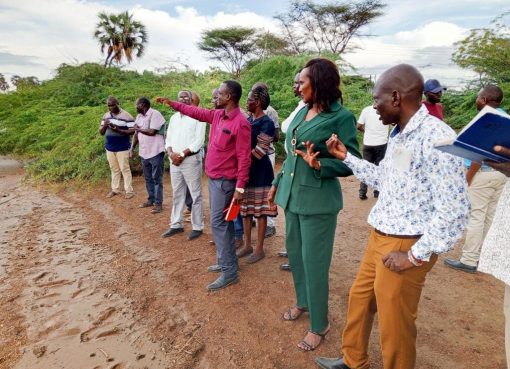The government has provided for free 25 metric tonnes (500 bags of 50kg) of potato basic seeds for planting to counties to produce certified seeds.
This will result in about 2,500 tons after two field multiplications and added to the current annual production of 6,500 tons of certified seed, will improve farmer access to certified potato seed and mitigate the effect of Covid-19 on potato production.
Speaking on Monday when flagging off the potato basic seed to six counties for Common Interest Groups (CIG), Agriculture Cabinet Secretary (CS), Peter Munya said Kenya Agricultural & Livestock Research Organization (KALRO) has made efforts in responding to the effects of Covid-19 by availing potato basic seed to produce certified seed for farmers as well as providing planting materials of various commodities.
Munya said 60 staff from the six counties namely Uasin Gishu, Elgeyo Marakwet, Bomet, Nyandarua, Nyeri and Taita Taveta have been trained, through the CIGs, their farms have been sampled by KEPHIS to assure suitability of identified seed bulking sites and land preparation and procurement of planting inputs undertaken.
“KALRO has also availed planting materials of various food crops and livestock fodder propagated in diverse locations that are mainly in KALRO Centres and Institutes. These planting materials include seedlings, seeds, seed cuttings, splits and vines that will be accessed from those locations,” he said.
Munya noted that the farming community will be adversely affected in terms of food security and livelihoods thus there is an urgent need for the Ministry to develop additional strategies that will enable them recover and also make them more resilient to future such challenges.
“Due to the Covid-19 pandemic, invasion by Desert Locusts and the current floods resulting from the on-going rains is further anticipated that the farming community will be adversely affected in terms of food security and livelihoods,” he said.
He has thus directed all institutions under the Ministry to focus towards the Seedlings Initiative under the Corporate Social Responsibility (CSR) by increasing the number of seedlings for distribution during the October, November, December (OND) rains in addition to the ready seedlings that were to be distributed during the March, April, May (MAM) and are being preserved in the stations.
“We plan to have a major seedlings distribution in the next season to farmers and the target is to issue more than three (3) times the number of seedlings that you are currently preserving,” he said.
On potato seed production, the CS noted that KALRO is implementing the Kenya Climate Smart Agriculture Project (KCSAP) which seeks to build resilience in the agricultural sector in order to promote inclusive growth and shared prosperity.
One of the aims of the project is “Building Competitive and Sustainable Seed Systems” on crops and livestock value chains with potato being one of the value chains where it is projected to add 2,500 metric tons of certified potato into the national seed supply annually through this two-year project.
The KALRO Director General (DG), Dr. Eliud Kireger explained that the basic seed is the seed produced under the highest level of genetic control to ensure the seed is genetically pure and accurately represents the variety characteristics identified by the breeder during variety selection.
This seed, he said requires further multiplication and is therefore given out to seed producers to multiply it for wide distribution to farmers and as expected the quantities are much smaller than certified seed.
“Certified seed production is set to increase by 61.5 per cent and it is expected to contribute to potato production by 300 per cent over 40 metric tonnes per hectare compared to the current output levels of 10tonnes/ha. Yield potential currently stands at 60 tonnes per hectare,” said Dr. Kireger.
Currently a bag of certified seed of 50 kg bags is going at Sh 3,500 and once these certified seeds are presented in the market, the price is likely to come down to Sh 2.700
Potato is the second most consumed crop after maize that is produced in 20 of Kenya’s 47 counties under varying socio-economic and climatic conditions.
Potato farmers in these counties continue to face various production challenges leading to an average production of 10 tons per hectare against a potential of 60 tons per hectare.
Climate change has also continued to be a major challenge generally to agriculture including potato production and although KALRO has made several efforts to mitigate the effects of climate change, the recent outbreak of the Covid-19 is a threat that is undermining those efforts and is likely to exacerbate these effects by affecting labour supply on farming.
Some of the other contributions by KALRO towards Covid-19 are 3000 seedlings of sweet yellow passion, 100,000 splits of napier grass, 10,000 cuttings of cassava, 3 million vines of sweet potato, 100,000 face masks among others
By Wangari Ndirangu





